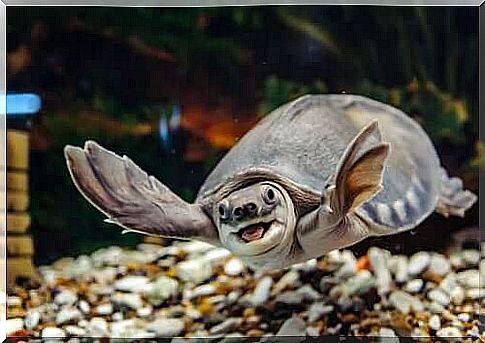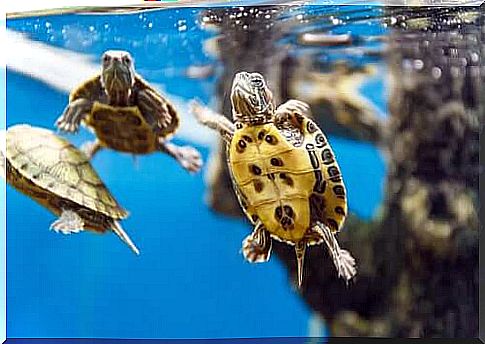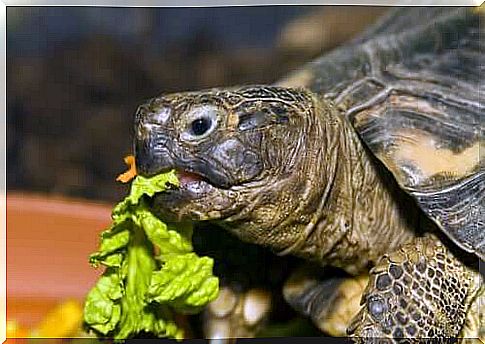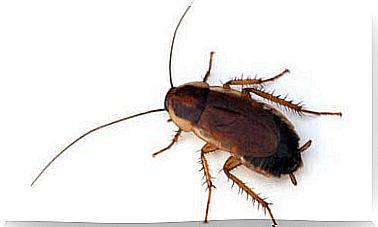Care Required By A Water Turtle

The aquatic turtle has become a very popular pet, especially among children. Although they require relatively simple maintenance, these reptiles also need certain basic care to maintain optimal health.
Next, we’ll talk about caring for a water turtle.
Essential care required by an aquatic turtle
1. Choosing the right pool for your turtle
A domestic aquatic turtle will spend its entire life inside your terrarium. Therefore, one of the essential cares is to choose carefully and conscientiously the pool where your pet must find the ideal conditions for its development.
In this sense, it is essential to remember that aquatic turtles can grow a lot since their arrival in their new home. In general, caregivers acquire puppies that are only a few weeks old and can quadruple in size by adulthood.
Therefore, it is essential to know the species before adopting them in order to choose an aquarium of suitable dimensions. Aquatic turtles are active and like to swim freely for exercise and expression.

In practice, the terrarium for these reptiles should be large enough to allow the turtle to swim and move around comfortably. In general, it is recommended that the dimensions of the pool be three or four times larger than the turtle.
2. Preparing the aquarium for your turtle
Aquatic turtles are cold-blooded species, meaning they depend on environmental conditions to regulate their own body temperature.
This thermoregulatory mechanism – of factors external to the organism – is called poikilothermia, and is observed in numerous species of reptiles.
This means that although your turtle will spend many hours underwater, it will also need a dry space where it can sunbathe, dry its body, and regulate its body temperature.
To ensure the availability of light, especially in winter, a lamp can be installed in a strategic corner of the aquarium.

The ideal water temperature in your turtle’s terrarium should be between 24°C and 26°C. To maintain this temperature year-round, you can use a common heating system in fish tanks and aquariums.
3. Balanced feeding of aquatic turtles
Nutrition is one of the most important cares of a aquatic turtle, as it is essential for the development of physical and cognitive skills. Your turtle’s diet will depend on the animal’s age, species and health status.
In general, the turtles need to consume a greater amount of protein during the maturation period, which extends until the third year of life.
In this first stage of development, the reptile has an accelerated growth and its nutrition must contain good sources of animal proteins, such as worms, crickets, small fish and crustaceans.
From the third year of life, the turtle will gradually reduce the consumption of animal proteins until it becomes mostly herbivorous.
It is recommended to incorporate edible algae, green leaves and lettuce into your diet to avoid episodes of constipation, which are common in these species.

In specialty stores, you can find food for aquatic turtles. These foods are interesting because they contain proportions balanced according to the nutritional needs of these reptiles.
However, it is also highly recommended to incorporate fresh, natural foods to complement your turtle’s nutrition.
4. Prohibited food for the aquatic turtle
Next, we will list foods that should not be incorporated into a water turtle’s diet as they can be toxic.
- Vegetables : Avoid offering peppers, beans, mushrooms, asparagus, sweet potatoes and pumpkin to your turtle.
- Meat : it is not recommended to give red or white meat with a high fat content to aquatic turtles. The best sources of animal protein are fish, worms, crustaceans and small insects.
- Fruits : The best fruits for turtles are apple, pear, watermelon and cantaloupe. You must not offer citrus fruits or bananas.
5. Preventive medicine
As more “traditional” pets, turtles can also get sick easily if they are not given adequate preventative medicine.
Lack of hygiene in swimming pools is usually the main cause of illness in aquatic turtles, as it favors the proliferation of harmful microorganisms and pathogens.
One of the essential precautions to preserve your good health is to maintain good hygiene in the pool and have a weekly water change. A thorough cleaning should be done at least once every two months, with mild soap and warm water.
Last but not least, it is necessary to make preventive visits every six months to a specialized veterinarian, to check the health status of your water turtle.









